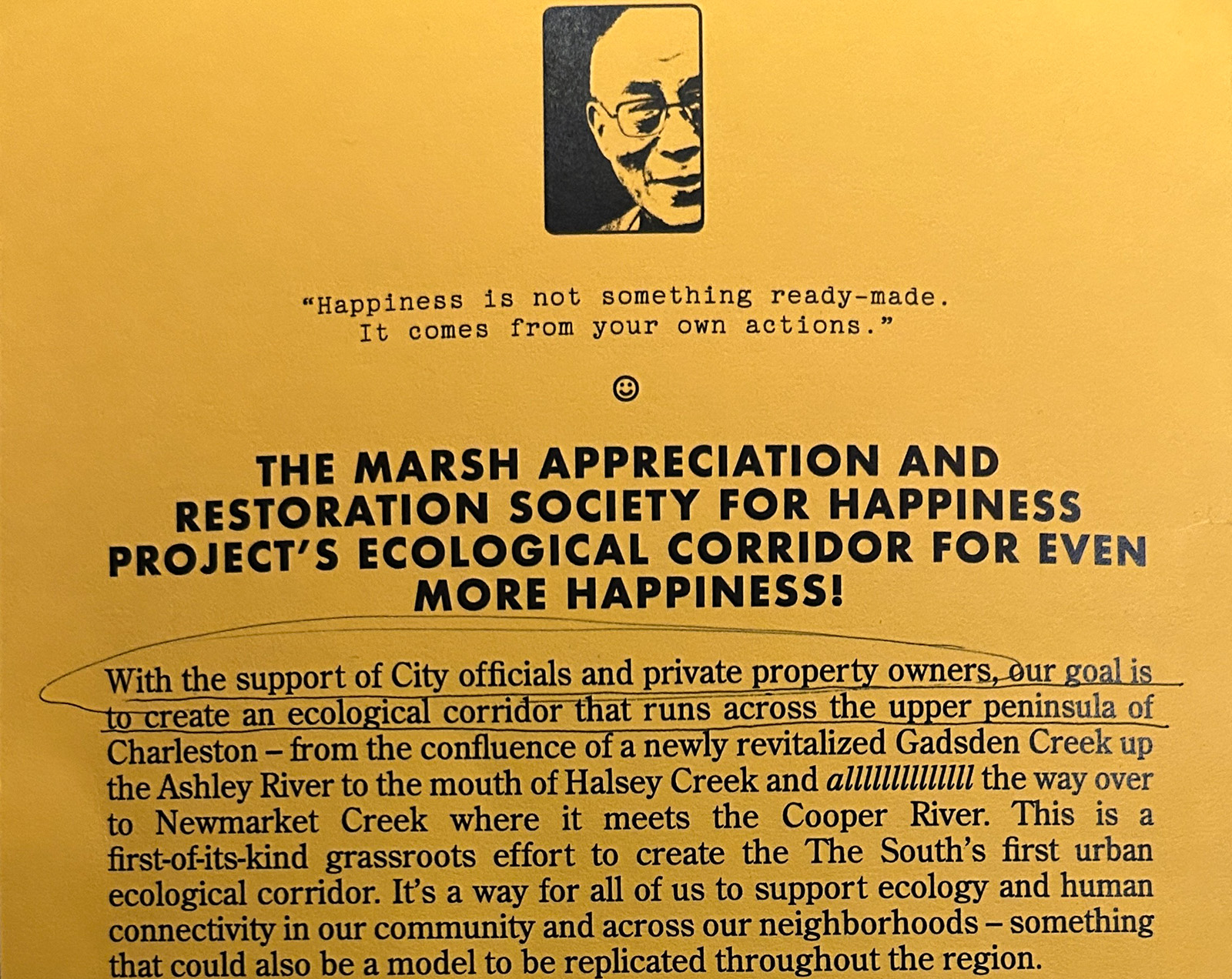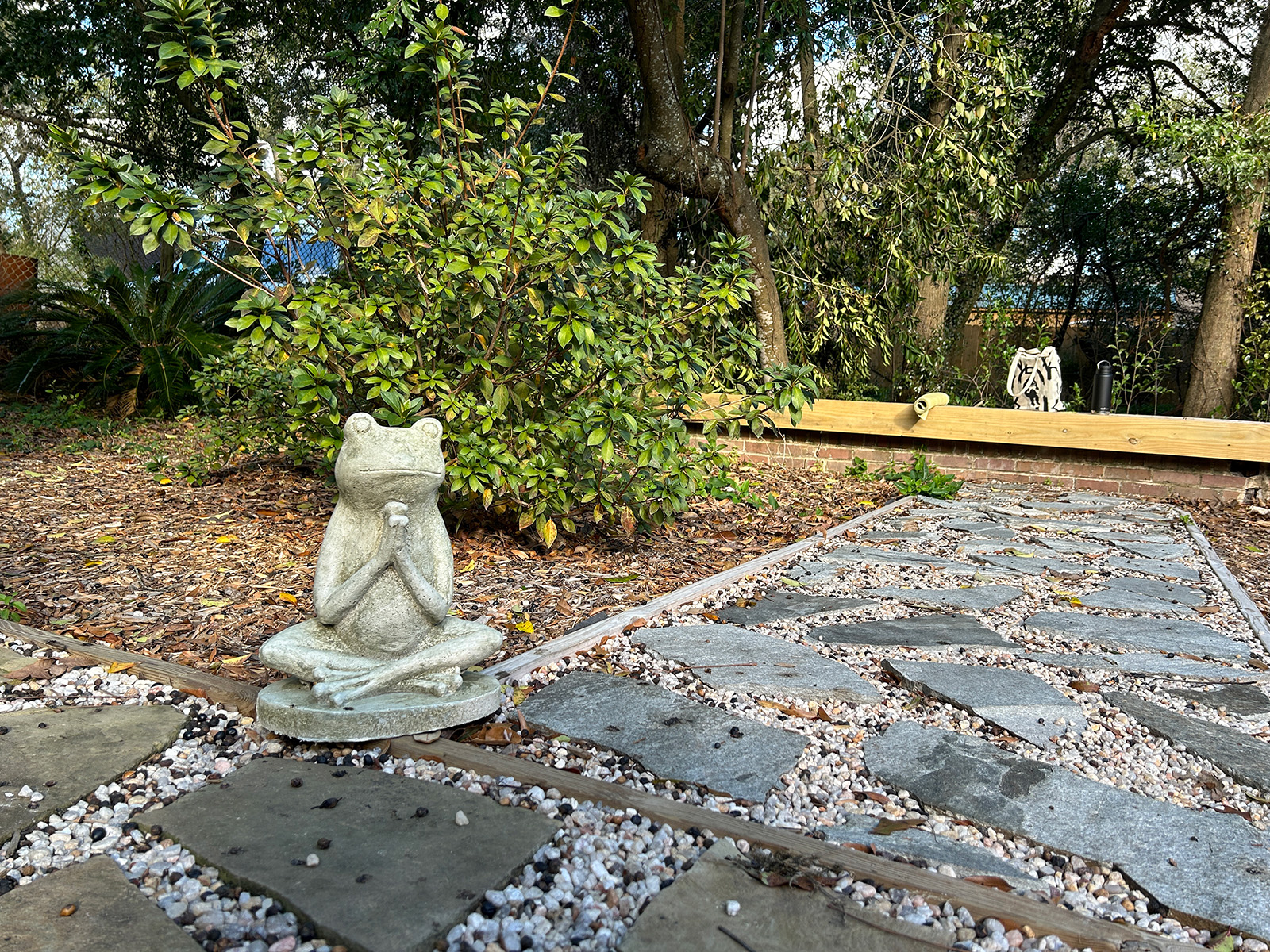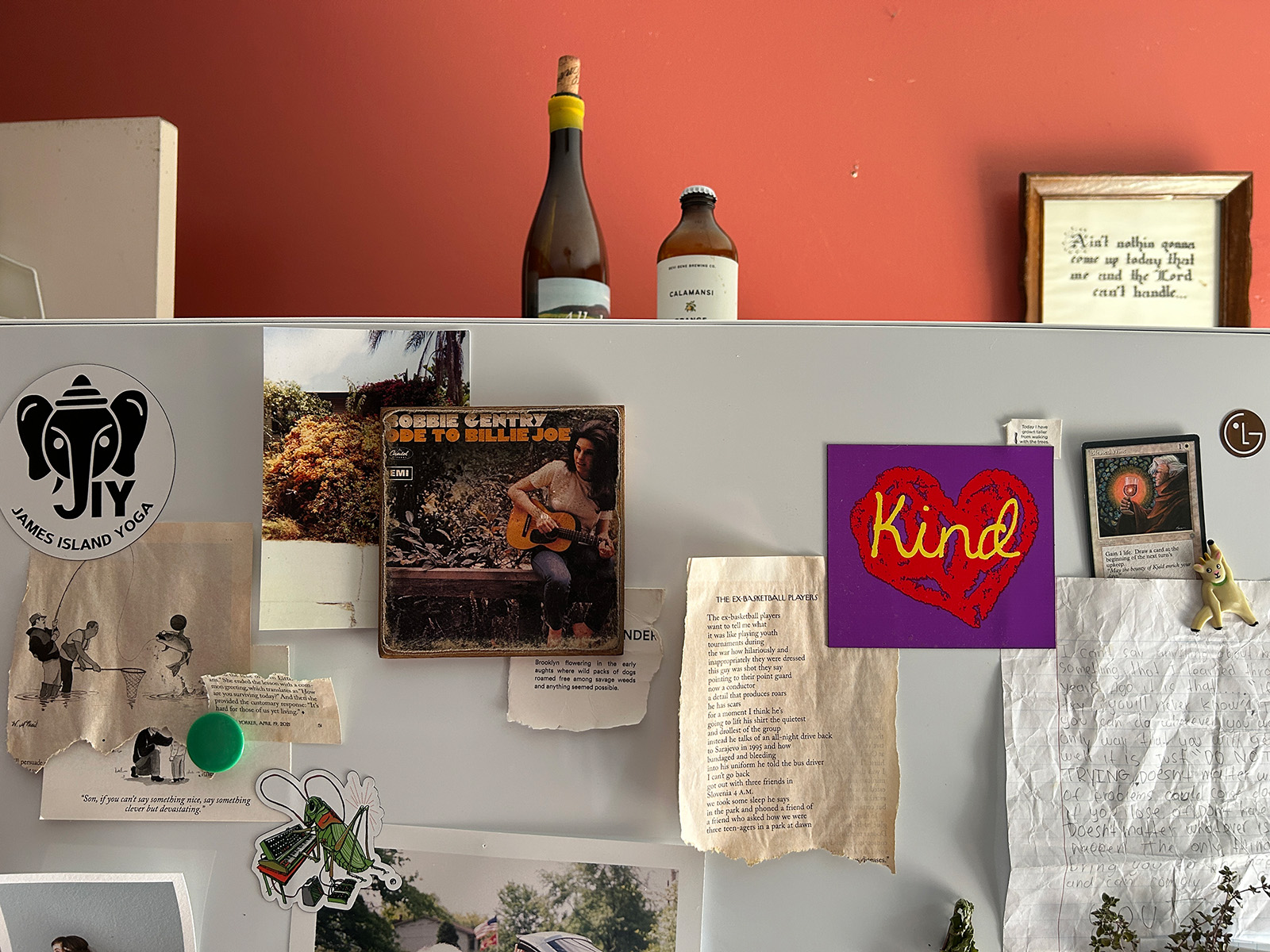Guidebook to Action: Won’t You Be My Neighbor?
By Katherine Bartter
On a Friday night in a repurposed warehouse, Mika Gadsden stood in front of a crowd of dreamers. We were all instructed that the night’s purpose was “to dream.” To dream of something that would be the first of its kind in the South: an ecological corridor in Charleston that would benefit all neighborhoods, including the historically marginalized and disenfranchised, which in Charleston’s case includes the Gullah Geechee people.
Living in the Southeast United States can often feel hopeless. You could say that old haints, mires, floods, and the blues cling to every corner. History hurts. Bad news comes often. There’s something coming up from the soil saying, “There’s nothing you can do to change the past, and it has an inevitable hold on the throat of the future.” And the soil is right.
But woven throughout the potholes, you’ll find the stepping stones to something incredibly special: community. Community is the balm and the solution. It is where neighborhoods, the land, and humanity intersect. It is the crux of connection, support, and change. It is where neighbors help you after you take a fall, where gardens are planted, and where conversations say, “You know, I think we should do something about this.”

It can be tempting to acquiesce, to burrow, to run, to take flight in the face of what seems to be unbearably hard times to come. I’m here to tell you: don’t. In the days that feel dark, scary, and even painful, I’m here to tell you: hold on to and invest in your community.

Community organizations are everywhere, and they are like bees. Small but powerful and persistent pollinators that commune, gather, and build incredible infrastructure right beneath our noses. They work with local government, public institutions, private businesses, and communities to educate, inform, and bridge partnerships to implement things like public transit, equitable policy, and clean drinking water. They lve, breathe, and fight on your behalf. Help them.

What You Can Do
Contrary to what you may have been told, good deeds and impactful actions do not have to be huge and loud. Every sponsored CSA box quietly delivered to a doorstep feeds a family. Every letter written to a City Councilmember expands possibility. Every dollar donated gives needed funds for the end goal. Every member sitting in the back of the room during a public meeting fills that room with presence.
You don’t need to tackle every injustice, every broken road. You just need to be decisive, be focused, pick a cause, and show up. Now more than ever it is easy to find and support local organizations via social media and search engines. Seek out your people’s budget coalition, climate resiliency non-profit, soup kitchen, or accessibility and mobility group. Connect with the organization that speaks to you; know that they already have a plan, and all they need is more people that believe in the power of action. Listen to them, volunteer, include your friends, make it fun, and give back when you can.
It’s a new day and a new age. It’s the Internet, baby. National, international, and intergalactic information is out there and it’s there and it’s there and it’s there. It’s wildfires, federal elections, refugees, colonization, racing to Mars. It’s outsourcing and offshoring. It’s genocide, and it’s a new face wash. It’s there and it’s there and it’s there.
But where are you? If you’re reading this, you are reading this. You are in a very small, very safe moment. Stay here. Stay with your body.

What You Can Do
Analysis paralysis and distraction can stagnate meaningful action. When we get too caught up in ideals, continuous arguments, and aspects of systems that we have absolutely no control over, we lose the ability to be present for ourselves, our loved ones, and our community.
Instead, be present. Stay informed. Stay here. Be calm. Rest easy in knowing there is always something to be done right at home. Read your local news, understand local regulations, taxes, laws, and the mechanisms with which they can be changed. Know that for every bad headline, somewhere there is a good one. Continue to keep the larger context in purview by thinking globally and resonating with peoples all over this earth, but focus, be present, and harness your actions for the local good. Grow, progress, and change from your center of residence. Save your forest, save your community, save your systems.
I strongly believe that you cannot care for others if you do not take care of yourself. At the same time, I believe that caring for and serving others is a form of self-care. Fundamental human needs include safety, shelter, food, sleep, movement, play, and finally—community. Caring for these things can lift the greater weight that is society off of your shoulders with ease, levity, and wisdom. You don’t need to be perfectly whole, healed, or a round-the-clock activist. You just need to nap, to laugh in fellowship with a neighbor, and to do good work when you can.

What You Can Do
It is a radical act to rest and to be kind in a society that values hustle, productivity, competition, extremism, and efficiency at the cost of good health, safe practice, and quality results.
Eat, sleep, and commune well. Take time to be with yourself, take time to be with friends, go to local shows, businesses, and restaurants, talk to strangers, be outside, listen when someone is speaking, laugh at mistakes and misunderstandings, be patient when something is taking longer than expected.
Give the gift of care, kindness, and compassion to yourself, to the land, and to everyone around you; and yes, even to those who you feel are wrong, destructive, or harmful. Extend gratitude, respect, and help in every moment that calls for it, and allow yourself and others to take it easy. These acts of kindness, patience, and respect reinforce to your own body and to others that there is enough. Enough resources, enough support, enough understanding. Never be stingy with love. Care moves everything and everyone forward. The more we can see and be the good, the more we can collaborate and work together to do hard things.
The crowd of dreamers sipped beers from a local brewery. The beer was made in partnership with the M.A.R.S.H. project using native goldenrod sustainably foraged from the area. Proceeds from the sale of the beer benefitted the project. The crowd murmured joyfully.
Gadsden opened the event with her story. She is of the Gullah Geechee community. She had run for Mayor of Charleston in 2023, and she was outspoken and direct about the failures of the City on behalf of the people. She didn’t win. Instead, Williams Cogswell, a candidate on the opposite end of the political spectrum landed the seat. But her story didn’t end there.
We can cultivate a culture that stands arm in arm with one another to effect change. –
Mika Gadsden, Special Advisor for Community Initiatives, City of Charleston
During her campaign, she inevitably had to sit next to her opponent. They would talk, share, and joke between debates. She was surprised to find they connected. She punctuated her story with this note, “You can find the unlikeliest of friendships in the unlikeliest of places.”
She is now one of the Mayor Cogswell’s advisors. She facilitates community engagement, informs policies and programs, and provides liaison between not just the Gullah Geechee community but all of the Charleston community and our City officials.
She ended her story with an emphasis on the power of dreaming together: “We can cultivate a culture that stands arm in arm with one another to effect change.”
The message throughout the night was the same: don’t worry, don’t divide. We are in this together, and we can find a better tomorrow even in the darkest night. Someone else is there to carry the torch when you no longer can, and we can make it happen even if it takes time.
Take action, be present, take care, and keep going.



